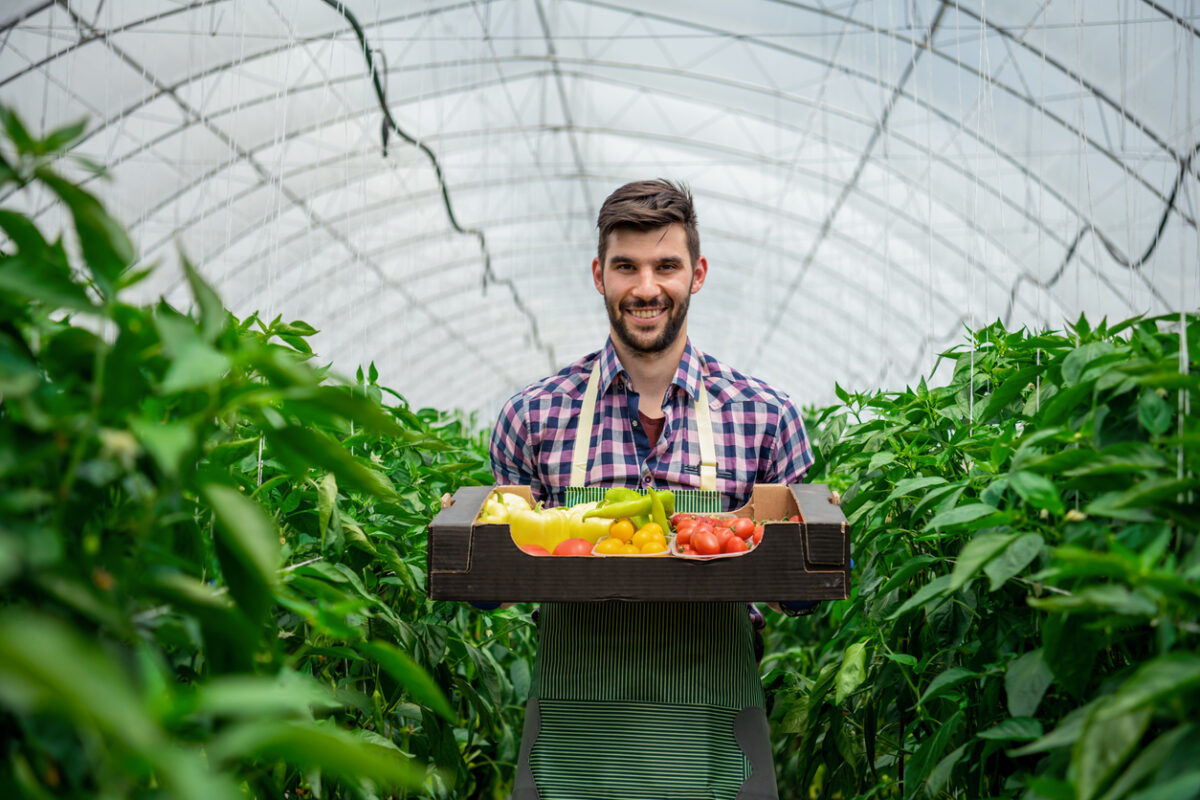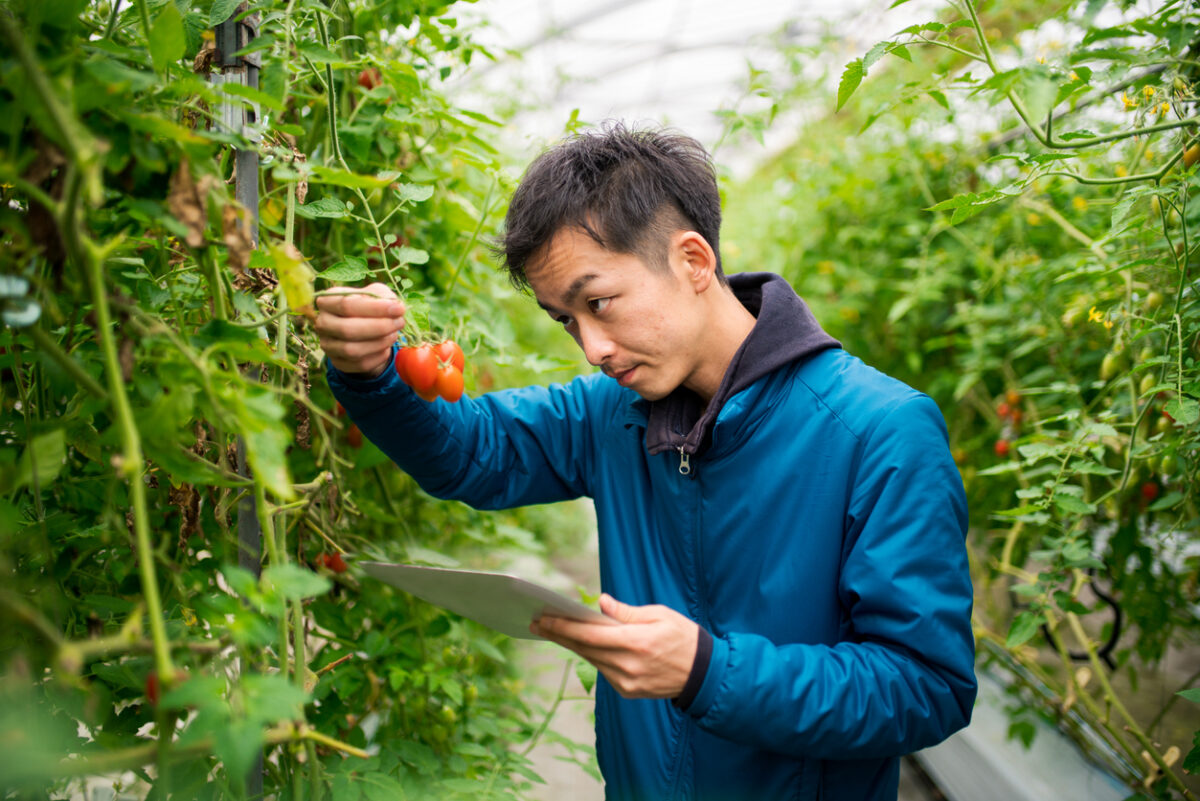Green Jobs: what does a Climate Scientist do?

It’s a stereotype that us Brits love talking about the weather. It is, after all, a perfect topic for small talk, given that our days can often go from rain, to sun, to hail and back again in the space of an hour or so.
If your interest in the weather goes beyond small talk, however, then you might want to consider becoming a Meteorologist or Climate Scientist. These positions have always been necessity, but with the climate crisis increasingly impacting every facet of life, they have taken on a new importance in more recent years.
When it comes to food, meteorology, climate science and forecasting go hand in hand. Knowing weather patterns and understanding how they’re subject to change, both under normal circumstances and the influence of climate change, is crucial for farmers and other food producers.
Dr Freya Garry is a Senior Scientist in the UK Climate Resilience team at the Met Office. One of the areas she focuses on in her work is how climate change will impact agriculture. She tells Food Matters Live: “Agriculture and food are so important to all of us – I really find it motivating to help contribute to improving understanding of how agriculture will be impacted by extreme weather and climate change in the future.”
What are the responsibilities?
- Running data analytics and modelling
- Examining historic data and assessing trends
- Presenting research findings to a variety of audiences
- Communicating with multiple groups, from local communities to government teams
- Writing academic papers
- Attending industry conferences
- Collaborating with other teams
- Communicating results and forecasts with the media
For Chloe Brimicombe, a Heatwave Hazard PhD Researcher at the University of Reading, it is the diversity of the job which keeps her so interested. “I get to do so many cool things I didn’t know could fit into one job,” she says. “Every day is different, and I also get to talk to and work with so many brilliant people.”
Who might your employers be?
As Freya and Chloe show, two of the most common employers of climate scientists are meteorological institutions like the Met Office and universities – through this, you may also find yourself working with the Government. Humanitarian organisations like the UN also have their own agricultural meteorology programmes which require the expertise of climate scientists.
Private sector-wise, there are opportunities too. Many large food producing companies will commission climate scientists to assess things like weather patterns, which they can use to inform things like harvesting times and yield projections.
What qualifications do you need?
Given this is a highly specialised field, the majority of people working within climate science and meteorology have been to university to study related subjects. You may find that your career begins in a more general field, before being able to specialise. If you’re keen to work within a food-related field, this may come later.
Freya, for example, began her education studying oceanography and the physics of the climate system. She admits that her work focused on food systems is “a bit different” from her original studies. “However, it gives me a good background to understand how the global climate system is changing and then understand how this will impact on the UK,” she says.
Chloe’s education history is rooted in geography and computing. It was only at Master’s level that she began specialising as a Climate Scientist, which led her to her current PhD focused on heatwaves.
Both women have multiple degrees, but try not to be intimidated if this sounds daunting at first. Each stage in your education journey can come with a wealth of support, and it all begins with the first step. Try looking into some of these courses for an idea of where you might like to study:
- Climate Science BSc, University of Durham
- Climate Change BSc, University of Greenwich
- Geophysics and Meteorology BSc, University of Edinburgh
- Meteorology and Climate BSc, University of Reading
Because of the heavy focus on numbers and modelling, you may also find degrees in maths, statistics and computing stand you in good stead for future work in this field. If you’re interested in planning even further ahead, check out these postgraduate courses with which you can further your studies:
- Weather and Climate Science MSc, University of Exeter
- Climate and Atmospheric Science MRes, University of Leeds
- Applied Meteorology MSc, University of Reading
- Applied Meteorology and Climatology MSc, University of Birmingham
As for PhD programmes, Chloe recommends only following through with this if you think it is a good fit for you. “It is incredibly hard mentally,” she explains, adding that there are plenty of research and science communication jobs that don’t need one. She adds: “But if you want to do one and do academic research, apply to many PhD programs and keep persevering.”
What is the salary like?
Unfortunately, many jobs in academic and applied research aren’t as well remunerated as others. However, there is still the chance to be paid well – and the value of the work they’re doing is often what motivates people, more so than the money itself.
According to the National Careers Service, someone working as a Climate Scientist can start off earning around £15,000. At its most lucrative, climate science tends to pay around £55,000.
Where will you be working?
Many working as a Climate Scientist find themselves working either in labs or universities. However, if you’re interested in specialising in agriculture, you may also have to conduct site visits to farms or other food manufacturing centres. You could also choose to teach while working, meaning you’ll often be in classrooms, lecture halls or other educational settings.
Of course, every job is different. Freya explains: “My job is computer based, so I spend some time working from home now, and some time at the Met Office building in Exeter.
“With virtual meetings now, there is sometimes less need to travel, but for some things like scientific or industry conferences, or collaborating, there is great benefit in being in the same room and talking directly to people.”
What is career progression like?
A lot of the progression within climate science will be related to specialising. As Freya’s career showcases, you can begin working in one field and slowly transition to something entirely new. Though she began working in oceanography, her team now regularly produces work on how the climate crisis will impact agriculture.
You might start out working as a junior member of staff – usually something like a lab assistant or junior analyst. From here you may work your way to more senior positions, or even becoming the lead of certain teams or departments. Additionally, your expertise may be called upon for consultancy or advisory work.
Is there demand for this role?
Many people believe there is no escaping the climate change discourse – and for good reason. The climate crisis will continue to make its mark on every day life for years to come, and the need for well-trained and insightful Climate Scientists to help everyone understand and combat it is greater than ever before.








